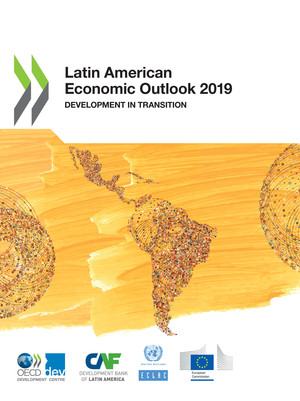copy the linklink copied! Foreword
The Latin American Economic Outlook (LEO) analyses issues related to sustainable and inclusive development in Latin America and the Caribbean (LAC). Since the LEO’s launch in November 2007, the annual report has compared LAC’s performance with that of other regions, analysed main development challenges and put forward policy recommendations, experiences and good practices.
The LEO benefits from the expertise and inputs of co-authors. Since 2011, the LEO has been published in conjunction with the United Nations Economic Commission for Latin America and the Caribbean (ECLAC). In 2013, the CAF – Development Bank of Latin America joined the team of authors. Since LEO 2018, the European Union joined as one of its main partners.
This 12th LEO, Development in Transition, presents a fresh analytical approach in the region. Latin America and the Caribbean has seen remarkable socio-economic progress since the beginning of the century. The macroeconomic situation of individual countries has strengthened, living standards have improved, and poverty and inequality have declined. Yet large structural vulnerabilities remain and new ones have emerged, many of which are linked to the transition to higher income and development levels. This new approach offers a comprehensive analytical approach that assesses the increasingly complex multi-dimensional challenges facing the region: four development traps relating to productivity, social vulnerability, institutions and the environment. It outlines local opportunities for responding to those traps and seeks ways of improving global public goods to reinforce national agendas, all in the context of the United Nations 2030 Agenda. LEO 2019 calls for improving domestic capacities and adopting a new vision of international co-operation as a facilitator to support those efforts.
Metadata, Legal and Rights
https://doi.org/10.1787/g2g9ff18-en
© OECD/UNITED NATIONS/CAF/EU 2019
The use of this work, whether digital or print, is governed by the Terms and Conditions to be found at http://www.oecd.org/termsandconditions.


